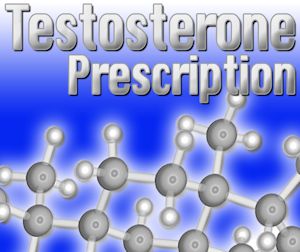Introduction
In recent years, the scientific community has increasingly focused on the impact of environmental toxins on human health, particularly on endocrine systems. A groundbreaking study has shed light on how these toxins, known as endocrine disruptors, specifically affect testosterone levels in American males. This article delves into the findings of this study, exploring the implications for men's health and the urgent need for increased awareness and action.
The Role of Testosterone in Men's Health
Testosterone is a vital hormone that plays a crucial role in the development and maintenance of male reproductive tissues, as well as promoting secondary sexual characteristics such as increased muscle and bone mass. Beyond its physical effects, testosterone also influences mood, cognitive function, and overall well-being. Any disruption to its normal levels can have significant health implications.
Understanding Endocrine Disruptors
Endocrine disruptors are chemicals that can interfere with the body's endocrine system and produce adverse developmental, reproductive, neurological, and immune effects. These chemicals are found in various everyday products, including plastics, pesticides, cosmetics, and food packaging. Common endocrine disruptors include bisphenol A (BPA), phthalates, and certain pesticides.
The Study: Methodology and Findings
The study in question was conducted by a team of researchers from leading American universities and focused on a diverse cohort of American males aged 18 to 65. Participants were assessed for their exposure to various endocrine disruptors through blood and urine samples, as well as through detailed questionnaires about their lifestyle and environment.
The results were alarming: a significant correlation was found between higher levels of exposure to endocrine disruptors and lower testosterone levels. Specifically, men with higher concentrations of BPA and phthalates in their systems exhibited testosterone levels that were, on average, 20% lower than those with minimal exposure. This finding underscores the potential threat that environmental toxins pose to male hormonal health.
Implications for Men's Health
The implications of these findings are profound. Lower testosterone levels can lead to a range of health issues, including decreased libido, erectile dysfunction, reduced muscle mass, increased body fat, and mood disturbances such as depression and irritability. Over time, persistently low testosterone can also contribute to more serious conditions like osteoporosis and cardiovascular disease.
Strategies for Reducing Exposure
Given the pervasive nature of endocrine disruptors, reducing exposure can be challenging but is essential for maintaining optimal testosterone levels. Practical steps include:
- **Avoiding Plastics:** Minimize the use of plastic containers, especially for food and beverages. Opt for glass or stainless steel alternatives.
- **Choosing Natural Products:** Select cosmetics and personal care products free from phthalates and other harmful chemicals.
- **Eating Organic:** Whenever possible, choose organic produce to reduce exposure to pesticides.
- **Filtering Water:** Use water filters to remove contaminants from tap water.
The Need for Further Research and Policy Changes
While this study provides crucial insights, it also highlights the need for further research to understand the full scope of the impact of endocrine disruptors on testosterone levels. Additionally, there is a pressing need for policy changes to regulate the use of these chemicals more stringently and protect public health.
Conclusion
The findings of this groundbreaking study on the effects of environmental toxins on testosterone levels in American males are a wake-up call. As men become more aware of the potential risks posed by endocrine disruptors, they can take proactive steps to minimize their exposure and safeguard their health. Continued research and advocacy for stricter regulations will be essential in mitigating the impact of these pervasive chemicals on men's hormonal health.
Contact Us Today For A Free Consultation

- Genetics and Testosterone: Interplay, Influences, and Personalized Health Strategies [Last Updated On: February 18th, 2025] [Originally Added On: February 18th, 2025]
- Stoking Man’s Mettle: An In-Depth Look at Testosterone [Last Updated On: February 25th, 2025] [Originally Added On: February 25th, 2025]
- Unraveling the Testosterone Enigma: Navigating the Masculine Hormone's Impact on Life [Last Updated On: February 26th, 2025] [Originally Added On: February 26th, 2025]
- Unraveling Spectrum: Transitioning Through the Testosterone Timeline [Last Updated On: February 27th, 2025] [Originally Added On: February 27th, 2025]
- Unveiling the Realm Beyond Muscles: Illuminating the Comprehensive Merits of Optimum Testosterone Levels [Last Updated On: February 28th, 2025] [Originally Added On: February 28th, 2025]
- Unraveling the Testosterone Narrative: Distinguishing Truths from Fallacies [Last Updated On: February 28th, 2025] [Originally Added On: February 28th, 2025]
- Unlocking Vitality and Vigor: Unfolding the Secrets of Testosterone [Last Updated On: March 1st, 2025] [Originally Added On: March 1st, 2025]
- Empowering the Androgenic Alchemy: Natural Diet Strategies to Amplify Testosterone Secretion [Last Updated On: March 2nd, 2025] [Originally Added On: March 2nd, 2025]
- Optimizing Testosterone Levels Through Exercise: Mechanisms, Effective Workouts, and Age-Related Impacts [Last Updated On: March 3rd, 2025] [Originally Added On: March 3rd, 2025]
- Impact of Testosterone on Mental Health and Cognitive Functions [Last Updated On: March 4th, 2025] [Originally Added On: March 4th, 2025]
- Understanding Testosterone's Role in Male Health and Development Across Lifespan [Last Updated On: March 5th, 2025] [Originally Added On: March 5th, 2025]
- Understanding Testosterone's Role in Male Health and Development Across the Lifespan [Last Updated On: March 6th, 2025] [Originally Added On: March 6th, 2025]
- Optimizing Testosterone Levels Naturally: Diet, Exercise, Sleep, Stress, and Lifestyle Strategies [Last Updated On: March 7th, 2025] [Originally Added On: March 7th, 2025]
- Advancements in Testosterone Therapy: Enhancing Men's Health and Quality of Life [Last Updated On: March 8th, 2025] [Originally Added On: March 8th, 2025]
- Optimizing Male Health: Managing Testosterone Decline for Vitality and Well-Being [Last Updated On: March 9th, 2025] [Originally Added On: March 9th, 2025]
- Testosterone's Vital Role in Women's Health: Insights for American Males [Last Updated On: March 11th, 2025] [Originally Added On: March 11th, 2025]
- Unlocking the Potential: The Future of Hormonal Health Through Testosterone Research [Last Updated On: March 12th, 2025] [Originally Added On: March 12th, 2025]
- The Nocturnal Boost: How Sleep Fuels Testosterone Production in American Men [Last Updated On: March 12th, 2025] [Originally Added On: March 12th, 2025]
- Navigating Hormonal Harmony: The Interplay of Stress, Cortisol, and Testosterone in American Men [Last Updated On: March 13th, 2025] [Originally Added On: March 13th, 2025]
- Unleashing Potential: The Role of Testosterone in Athletic Performance Among American Males [Last Updated On: March 15th, 2025] [Originally Added On: March 15th, 2025]
- Understanding and Managing Low Testosterone in American Men: Symptoms, Causes, and Treatments [Last Updated On: March 19th, 2025] [Originally Added On: March 19th, 2025]
- Testosterone Enhancement: Supplements, Natural Remedies, and Medical Interventions for American Males [Last Updated On: March 19th, 2025] [Originally Added On: March 19th, 2025]
- Testosterone's Impact on Cardiovascular Health in American Males: A Comprehensive Overview [Last Updated On: March 19th, 2025] [Originally Added On: March 19th, 2025]
- Testosterone's Role in Enhancing Workplace Productivity and Drive for American Males [Last Updated On: March 19th, 2025] [Originally Added On: March 19th, 2025]
- Environmental Toxins' Impact on Male Testosterone Levels and Health [Last Updated On: March 19th, 2025] [Originally Added On: March 19th, 2025]
- Testosterone's Impact on Mood, Memory, and Motivation in American Males [Last Updated On: March 19th, 2025] [Originally Added On: March 19th, 2025]
- Testosterone's Crucial Role in Immune Health for American Males [Last Updated On: March 20th, 2025] [Originally Added On: March 20th, 2025]
- Testosterone Revolution: Redefining Masculinity and Enhancing Men's Health in America [Last Updated On: March 21st, 2025] [Originally Added On: March 21st, 2025]
- Testosterone's Role in Bone Health: Strategies for American Males to Prevent Osteoporosis [Last Updated On: March 21st, 2025] [Originally Added On: March 21st, 2025]
- Testosterone's Role in Male Libido: Understanding and Enhancing Sexual Vitality [Last Updated On: March 21st, 2025] [Originally Added On: March 21st, 2025]
- Testosterone's Impact on Metabolism and Fat Burning in American Males [Last Updated On: March 21st, 2025] [Originally Added On: March 21st, 2025]
- Testosterone's Role in Muscle Recovery: Mechanisms and Optimization Strategies [Last Updated On: March 22nd, 2025] [Originally Added On: March 22nd, 2025]
- Resistance Training Boosts Testosterone: Benefits and Protocols for American Males [Last Updated On: March 22nd, 2025] [Originally Added On: March 22nd, 2025]
- Testosterone's Impact on Ambition and Competition in American Males [Last Updated On: March 23rd, 2025] [Originally Added On: March 23rd, 2025]
- Navigating Testosterone Concerns: Preparation, Communication, and Treatment Options with Your Doctor [Last Updated On: March 23rd, 2025] [Originally Added On: March 23rd, 2025]
- Testosterone and Sleep: Enhancing Health in American Males Through Better Sleep [Last Updated On: March 23rd, 2025] [Originally Added On: March 23rd, 2025]
- Urban vs. Rural Living: Impacts on Testosterone Levels in American Males [Last Updated On: March 24th, 2025] [Originally Added On: March 24th, 2025]
- Outdoor Activities Boost Testosterone: Nature's Impact on Men's Health [Last Updated On: March 24th, 2025] [Originally Added On: March 24th, 2025]
- Key Nutrients Boost Testosterone: Vitamin D, Zinc, Magnesium, B6 for American Males [Last Updated On: March 24th, 2025] [Originally Added On: March 24th, 2025]
- Meditation Boosts Testosterone: A Holistic Approach for American Males' Health [Last Updated On: March 24th, 2025] [Originally Added On: March 24th, 2025]
- Testosterone's Impact on Cognitive Function in American Males Across Age Groups [Last Updated On: March 24th, 2025] [Originally Added On: March 24th, 2025]
- Optimizing Testosterone: The Impact of Rest and Nutrition on American Males' Health [Last Updated On: March 24th, 2025] [Originally Added On: March 24th, 2025]
- Optimizing Testosterone: Nutrition, Exercise, Sleep, and Stress Management for American Men [Last Updated On: March 25th, 2025] [Originally Added On: March 25th, 2025]
- Boosting Testosterone: American Men's Guide to Positivity and Mental Health [Last Updated On: March 25th, 2025] [Originally Added On: March 25th, 2025]
- Hormonal Harmony: Testosterone's Interplay and Balance Strategies for American Males [Last Updated On: March 25th, 2025] [Originally Added On: March 25th, 2025]
- Testosterone Levels in American Men: Factors, Impacts, and Optimization Strategies [Last Updated On: March 25th, 2025] [Originally Added On: March 25th, 2025]
- Low Testosterone's Economic Impact: Healthcare Costs, Productivity, and Social Well-being in the U.S. [Last Updated On: March 25th, 2025] [Originally Added On: March 25th, 2025]
- Testosterone Tracking: Apps and Wearables Revolutionize Men's Health Monitoring [Last Updated On: March 25th, 2025] [Originally Added On: March 25th, 2025]
- Testosterone's Multifaceted Impact on American Men's Mental Health [Last Updated On: March 25th, 2025] [Originally Added On: March 25th, 2025]
- Testosterone's Vital Role in Cardiovascular Health for American Males [Last Updated On: March 25th, 2025] [Originally Added On: March 25th, 2025]
- Understanding Andropause: Symptoms, Testosterone's Role, and Management Strategies [Last Updated On: March 25th, 2025] [Originally Added On: March 25th, 2025]
- Social Dynamics and Testosterone Levels in American Males: A Comprehensive Analysis [Last Updated On: March 25th, 2025] [Originally Added On: March 25th, 2025]
- Boost Testosterone with Resistance Bands: A Home Workout Guide for Men [Last Updated On: March 26th, 2025] [Originally Added On: March 26th, 2025]
- Modern Diets and Testosterone: Insights for American Men's Health [Last Updated On: March 26th, 2025] [Originally Added On: March 26th, 2025]
- Testosterone's Influence on Risk-Taking in American Males: Neurobiological Insights [Last Updated On: March 26th, 2025] [Originally Added On: March 26th, 2025]
- Music and Art: Natural Boosters for Testosterone in American Males [Last Updated On: March 26th, 2025] [Originally Added On: March 26th, 2025]
- Revolutionizing Men's Health: Advances in Testosterone Optimization Technologies [Last Updated On: March 27th, 2025] [Originally Added On: March 27th, 2025]
- Testosterone's Role in Enhancing Mental Resilience Among American Males [Last Updated On: March 27th, 2025] [Originally Added On: March 27th, 2025]
- Testosterone Replacement Therapy: Benefits, Risks, and Realities for American Males [Last Updated On: March 27th, 2025] [Originally Added On: March 27th, 2025]
- Testosterone Management in American Males with Chronic Diseases: Insights and Strategies [Last Updated On: March 27th, 2025] [Originally Added On: March 27th, 2025]
- Intermittent Fasting: Boosting Testosterone and Health in American Males [Last Updated On: March 27th, 2025] [Originally Added On: March 27th, 2025]
- Testosterone and Athletic Performance: Myths, Facts, and Future Research for American Males [Last Updated On: March 27th, 2025] [Originally Added On: March 27th, 2025]
- Testosterone's Impact on Body Image and Self-Esteem in American Males [Last Updated On: March 27th, 2025] [Originally Added On: March 27th, 2025]
- Personalized Medicine Revolutionizes Testosterone Therapy for American Males [Last Updated On: March 27th, 2025] [Originally Added On: March 27th, 2025]
- Testosterone's Role in Longevity: Optimization and Therapy Insights [Last Updated On: March 28th, 2025] [Originally Added On: March 28th, 2025]
- Testosterone Health for American Males: Balancing Work and Wellness Strategies [Last Updated On: March 28th, 2025] [Originally Added On: March 28th, 2025]
- Declining Testosterone Levels in American Males: Trends, Causes, and Health Strategies [Last Updated On: March 28th, 2025] [Originally Added On: March 28th, 2025]
- Testosterone's Role in American Male Health: Understanding, Testing, and Treatment [Last Updated On: March 28th, 2025] [Originally Added On: March 28th, 2025]
- Testosterone Research: From Lab Discoveries to Clinical Impacts on American Men's Health [Last Updated On: March 29th, 2025] [Originally Added On: March 29th, 2025]
- Testosterone's Impact on Immune Health in American Men: Insights and Management Strategies [Last Updated On: March 30th, 2025] [Originally Added On: March 30th, 2025]
- Testosterone's Impact on Skin, Hair Health: A Guide for American Men [Last Updated On: March 30th, 2025] [Originally Added On: March 30th, 2025]
- Gut Health and Testosterone: Optimizing Hormonal Balance in American Males [Last Updated On: March 30th, 2025] [Originally Added On: March 30th, 2025]
- Body Composition's Impact on Testosterone Levels in American Males [Last Updated On: April 1st, 2025] [Originally Added On: April 1st, 2025]
- Testosterone's Crucial Role in Male Sexual Health and Well-being for American Men [Last Updated On: April 1st, 2025] [Originally Added On: April 1st, 2025]
- Alcohol and Smoking: Impact on Testosterone Levels in American Males [Last Updated On: April 2nd, 2025] [Originally Added On: April 2nd, 2025]
- Testosterone's Evolutionary Impact on Social Dominance in American Males [Last Updated On: April 6th, 2025] [Originally Added On: April 6th, 2025]
- Acupuncture: A Natural Approach to Balancing Testosterone in American Males [Last Updated On: April 7th, 2025] [Originally Added On: April 7th, 2025]
- Effective Strategies for American Men to Boost Testosterone Naturally and Safely [Last Updated On: April 9th, 2025] [Originally Added On: April 9th, 2025]
- Boost Testosterone Naturally: Mindful Living Practices for American Men [Last Updated On: April 9th, 2025] [Originally Added On: April 9th, 2025]
- HIIT Boosts Testosterone: Benefits and Practical Guide for American Males [Last Updated On: April 9th, 2025] [Originally Added On: April 9th, 2025]
Word Count: 576





















